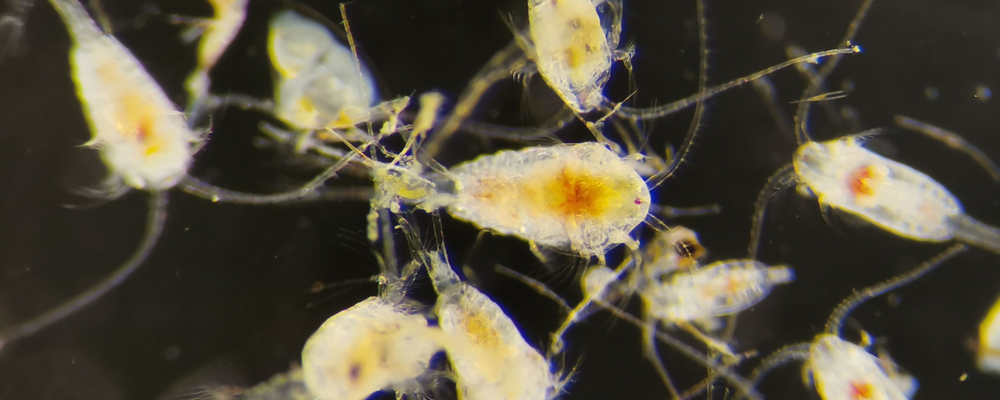International shipping emits large amounts of pollutants into the air and the marine environment. To reduce emissions into the air, a global sulphur limit of 0.5% for marine fuels was introduced in January 2020. This requirement has led to the emergence of so-called hybrid fuels on the market. Very little has been known about their effects on marine life, but a new study, recently published in the scientific journal Aquatic Toxicology, shows the hybrid fuels to be problematic.
FRAM researchers Christina Jönander and Ingela Dahllöf from the Department of Biological and Environmental Sciences at the University of Gothenburg have studied the effects of water-accommodated components of two fuels over generations of marine zooplankton communities. Christina Jönander explains why the study was needed:
- Some of our previous studies have shown that contaminants that originate from oil can be toxic to zooplankton, but the knowledge about the toxicity of these new hybrid fuels has been very limited. Particularly at the community level.
In the new study, they found that RMD80, one of the common low-sulphur hybrid fuels, was the more toxic one. The toxicity was largely driven by heavier poly aromatic hydrocarbons (PAHs), one of which appear on the European Chemicals Agency´s Candidate list of Substances of Very High Concern for Authorisation.
- We found several effects on the zooplankton, says Christina Jönander. Some species were more sensitive to the fuel, which eventually led to an altered community structure. We also observed increased feeding rates, and indications of reduced reproductive success in the copepods.
The two main results from the study are:
- the marine gas oil is the less toxic low-sulphur alternative to the hybrid fuel, and will have lower impact on marine zooplankton
- a hybrid fuel spill could result in altered diversity of future generations of these small, planktonic communities that are an important food source for larger marine organism such as fish
Read the full study in the journal Aquatic Toxicology: Short and long-term effects of low-sulphur fuels on marine zooplankton communities

